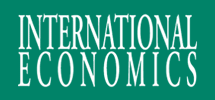
<< N°156
| N°156 | ||
| Issue Q4 2018 | ||
| The causal effect of reducing trade policy uncertainty: A comparative case study of Bangladesh's textile exports to Switzerland | ||
|
Christian Ritzel Andreas Kohler Stefan Mann Silviu Beciu |
||
| Swiss duty-free and quota-free market access (DFQFMA) for the least-developed countries (LDCs) within the industrial sector, including textiles, was introduced in 1997. However, a binding legal basis providing a secured and predictable DFQFMA did not come into force until 2007. In this context, the DFQFMA for LDCs was extended for an unlimited period. Additionally, four years later, Switzerland revised and improved its rules of origins for LDCs significantly with the objective of increasing the utilization of DFQFMA for LDCs. Accordingly, this paper challenges the effectiveness of reduced trade policy uncertainty by granting a legally secured and improved DFQFMA for LDCs. Using the Human Development Index as a proxy for United Nations LDC status criteria, we can provide unbiased causal average treatment effects. In a comparative case study, we compare Bangladesh's preferential textile and clothing exports under the legally secured and improved DFQFMA with those of its major competitors from Asia. Applying methods of causal inference, namely an interrupted time series analysis, we find that Bangladesh's preferential textile and clothing exports increased by 29 percent on average due to the first intervention in 2007 and by 17 percent due to the second intervention in 2011. |
Abstract |
|
| Trade policy uncertainty ; Causal effect ; Free trade ; Least-developed countries ; | Keywords | |
| F1 ; O1 ; | JEL classification | |
| Order form |